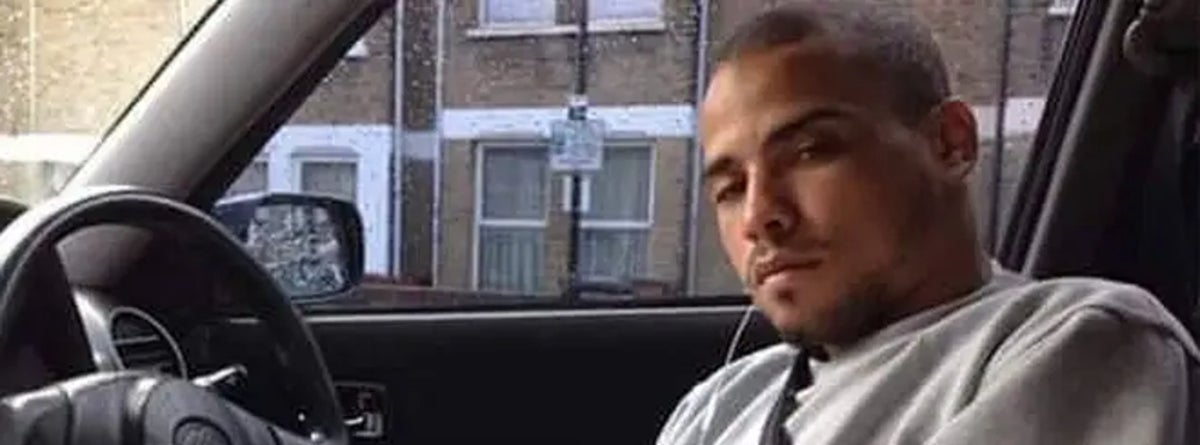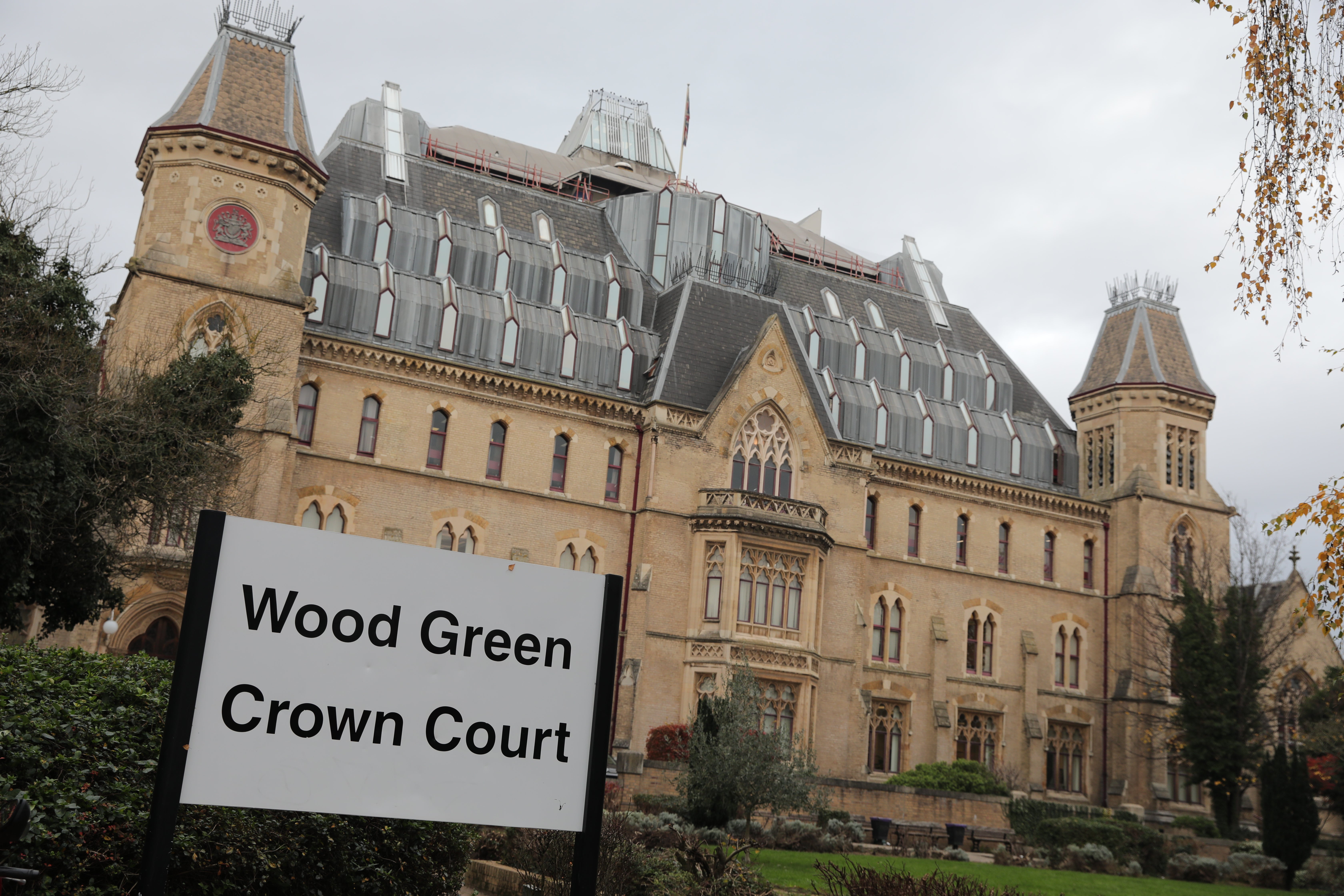
An unarmed father-of-two was “lawfully killed” by a firearms officer during a foiled prison break, but police made numerous failures in the planning and execution of the operation, an inquiry has concluded.
Jermaine Baker was fatally shot at close range as he sat in the front passenger seat of a stolen Audi A6 near Wood Green Crown Court in north London in December 2015 by police, who suspected he and other conspirators were about to free a dangerous prisoner from a custody van.
The 28-year-old, from Tottenham, was unarmed at the time he was shot by a counter-terrorism specialist firearms officer known only as W80, who told the inquiry he thought Mr Baker was reaching for a weapon.
An imitation firearm was later found in the back of the Audi.

Mr Baker’s mother, Margaret Smith, said the family could not accept the inquiry’s findings and that her son had been raising his hands in surrender before he was shot.
She said: “Jermaine was dead before he got in that car. His life was taken for no good reason. As I have always said, he should have gone to prison like the rest of the men in the car.
“I therefore cannot agree with the judge’s conclusions that Jermaine did not die as a result of these failures. That is a conclusion that I cannot understand and the judge has not explained why he has drawn that conclusion.
“After seven years of waiting and two months of evidence, we deserved more.”
Tia Demetrio, the mother of Mr Baker’s daughter Alexia, said the nine-year-old is “petrified” when she hears sirens or sees police officers.
She told PA: “I am going to go back and explain to her – no matter what this report says – that her father was unlawfully killed, and I will stand by that for the rest of my life.”
Inquiry chairman His Honour Clement Goldstone QC concluded that, while Mr Baker was lawfully killed, there were police failings at almost every stage of the operation, which would “serve as a loud wake-up call” to the next Metropolitan Police commissioner following the resignation of Dame Cressida Dick.
He said: “I conclude that, when W80 shot Mr Baker, he held an honest and genuine belief that Mr Baker was moving in order to reach for the firearm.
“As such, W80 perceived that Mr Baker posed a lethal threat… I draw the conclusion, on the balance of probabilities, that the perceived threat from the actions and movement of Mr Baker was such that W80 honestly believed that it was reasonably necessary for him to shoot at Mr Baker.”
Mr Baker’s family had called on the inquiry chairman to consider whether him being black could have been a factor in him being killed, but Mr Goldstone said he “found no evidence to support a finding that race played any part in Mr Baker’s death”.
He also said W80’s “overall credibility” as a witness “remained largely intact”.
The inquiry chairman highlighted a number of failures, including that public safety should have been – but was not – the primary objective of the operation, that intelligence that the conspirators had only been able to source an imitation firearm was not passed on to W80 and others, and the “delusional” idea the operation would succeed in ridding the streets of north London of lethal firearms.
The report said officers involved in the operation, Detective Inspector Robert Murray, Detective Chief Inspector Neil Williams and Detective Superintendent Craig Turner, had “a determination – bordering at times on the obsessive” to bring down violent gang the Tottenham Turks.
“Whilst this may have been a laudable objective, it should not have been something that was allowed to go ahead at virtually any cost and to the exclusion of proper and meaningful risk assessments and safety considerations, as well as compliance with protocols,” the inquiry found.
“There can be no doubt that sustained public protection was the prime objective of this operation; the safety of the public was not – and it should have been.”
The idea that this operation could succeed in ridding the streets of north London of lethal firearms was delusional— Jermaine Baker inquiry report
The most officers could have hoped for on the day was the arrest of some “small fry” and the seizure of one gun, the inquiry found.
“The available intelligence supported the likelihood of a failure in achieving sustained public protection save for the ‘small fry’ who were to be arrested at the scene,” the report said.
“The idea that this operation could succeed in ridding the streets of north London of lethal firearms was delusional – realistically one live firearm was the best the Metropolitan Police Service (MPS) could hope to recover.
“Unfortunately, those who decided that the operation should run were unable, because of their fixation on their desire to solve the Tottenham Turks problem at a stroke, to appreciate the flaw in their approach.”
The inquiry found a series of technical failures in the planning and execution of the armed operation.
It said officers had failed to consider any possible outcome other than an armed stop, and had not properly assessed the risk posed by Izzet Eren’s cousin, Ozcan Eren, who was behind the escape plot.
They also failed to engage with the Prison Service about Eren’s escape risk or tell prison van staff of the planned jail break.

Failures to keep notes of meetings showed “an arrogant, dismissive attitude towards formality and a failure to appreciate the importance of accountability and maintaining an audit trail”, the inquiry found.
It also concluded that failures by Mr Williams, who was tactical firearms commander on the day, did not amount to gross negligence and did not cause Mr Baker’s death.
Lawyers for Mr Baker’s family had highlighted failures in handling of intelligence and not using available surveillance tools to reduce the risks of an armed interception.
The Metropolitan Police said the way it plans and carries out armed operations has changed since 2015, and that it will take time to consider the inquiry’s findings.
Chairman of the Police Federation Steve Hartshorn said: “The findings of the inquiry that officer W80’s decision to discharge his firearm was justified and lawful are a welcome relief for the officer, and are important to all police firearms officers who have to make split-second life or death decisions in the course of their duty.”
Prosecutors decided not to bring criminal charges against W80 in 2017, and he is currently embroiled in a legal battle over whether he should face misconduct proceedings.







